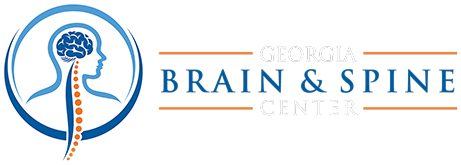At Georgia Brain & Spine Center
Hydrocephalus is a condition in which your cerebrospinal fluid (CSF) builds up in your brain leading to enlargement of the ventricles where CSF is stored. This can occur because there is an obstruction blocking the normal flow of CSF (called obstructive hydrocephalus) or because the brain cannot reabsorb CSF as quickly as it is being produced (called communicating hydrocephalus). Symptoms of hydrocephalus may include headaches, nausea and vomiting, double vision, lethargy, and seizures. Hyrdocephalus often presents at a young age and may be associated with some birth defects.
Normal Pressure Hydrocephalus (NPH) is a special form of hydrocephalus that usually occurs in adults over the age of 60. This is a type of communicating hydrocephalus. This condition has a classic triad of presenting symptoms: memory problems, difficulty walking, and urinary incontinence. Identification and treatment of NPH is important because it is a treatable condition and one of the few reversible types of dementia.
Hydrocephalus and Normal Pressure Hydrocephalus Treatments
To determine if you have hydrocephalus or NPH, our team will perform a comprehensive neurological evaluation and obtain appropriate imaging studies. In some cases, a lumbar puncture or placement of a lumbar drain with formal physical therapy gait assessment will help confirm the diagnosis and assess if you will be a good candidate for surgical treatment. Because other conditions can sometimes mimic hydrocephalus, it is important for us to conduct a comprehensive work-up to rule out other conditions.
Hydrocephalus and NPH can be treated with surgery to place a shunt that drains CSF from your brain into your abdominal cavity where it can be reabsorbed by the body. In some cases of obstructive hydrocephalus, an Endoscopic Third Ventriculostomy can be performed to create an opening that allows CSF to bypass the obstruction. Sometimes people who have had a shunt for years might develop a blockage or infection of the shunt that requires treatment. Our surgeons are always available to help evaluate and treat you for this condition.
The symptoms of Normal Pressure Hydrocephalus can improve with treatment. If you or your loved one has NPH or symptoms of NPH, we might be able to help. Contact us at Georgia Brain & Spine Center to schedule an evaluation.
